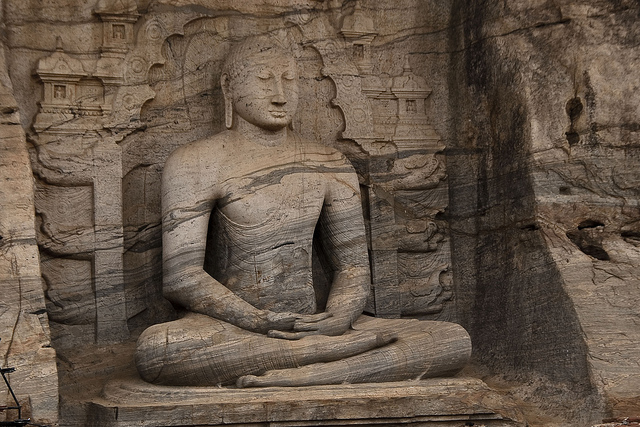
“There is a huge amount of freedom that comes to you when you take nothing personally.” ~Don Miguel Ruiz
The other day I received a comment on an old blog post that started with, “You’re full of crap,” and ended with, “I don’t know, and idiots like you don’t help us figure it out.”
Shortly after, I received an email from a new blogger who recently contributed to the site. She mentioned she’d received her first harsh comment, and she wanted to know if this is normal, and how she should deal with it.
I told her she will likely engage in far more constructive, uplifting conversations than negative, hurtful ones.
But this kind of thing is to be expected when you write about emotionally charged topics, especially since we often search for self-help articles when we’re looking for answers—or we’re looking to forget the answer we already know: that pain is unavoidable, and sometimes we simply need to go through it.
With this in mind, I responded privately to my reader, “I get the impression you’re really hurting right now. Is there some way I can help?”
Right then I thought about all the times I lashed out at people when I was suffering in the past. And I thought about how justified I felt in hurting others, especially when they’d hurt me first, or failed to really help.
These are not things I am proud to admit, and they’re not things I’d recommend or condone. We all have a responsibility to learn healthy ways to cope.
But I suspect if we’re honest with ourselves, most of us can identify moments when we acted thoughtlessly, from a place of sorrow or anger.
Most of us have felt pain burning like a hot coal in our hands and felt desperate to unload it, somehow, somewhere.
I don’t appreciate being called an idiot, and I know I don’t deserve it, just like none of us deserve misdirected rage from a family member, coworker, or stranger.
We have a right to set boundaries and communicate when something is not okay. But the world is a better place when we choose to do that from a place of love and compassion instead of righteousness and judgment.
We all act thoughtlessly at times. Most often we don’t mean to hurt each other. We just don’t recognize or remember how to stop hurting ourselves.
Photo by Yim Hafiz
About Lori Deschene
Lori Deschene is the founder of Tiny Buddha. She started the site after struggling with depression, bulimia, c-PTSD, and toxic shame so she could recycle her former pain into something useful and inspire others to do the same. You can find her books, including Tiny Buddha’s Gratitude Journal and Tiny Buddha’s Worry Journal, here and learn more about her eCourse, Recreate Your Life Story, if you’re ready to transform your life and become the person you want to be.
- Web |
- More Posts













 Though I run this site, it is not mine. It's ours. It's not about me. It's about us. Your stories and your wisdom are just as meaningful as mine.
Though I run this site, it is not mine. It's ours. It's not about me. It's about us. Your stories and your wisdom are just as meaningful as mine. 